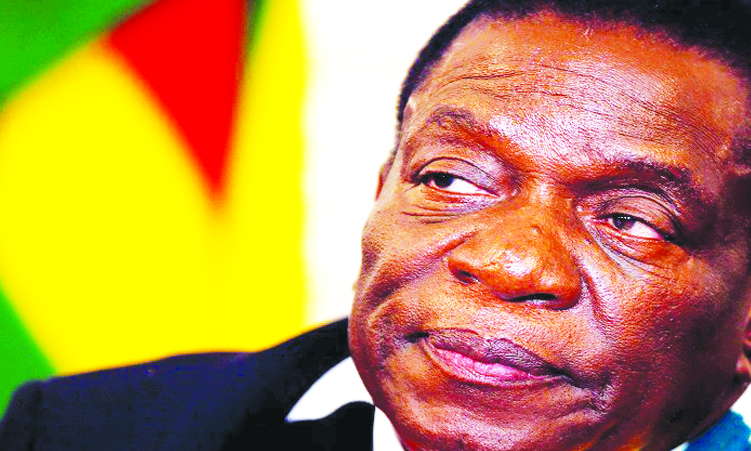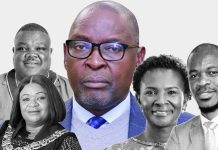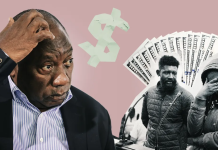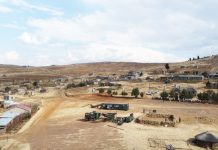By Eliaser Ndeyanale | 24 November 2024
Former Botswana president Ian Khama has called for sanctions against Zimbabwe if its ruling party is proven to have interfered in neighbouring countries’ elections.
The proposed sanctions against the Zimbabwe African National Union – Patriotic Front (Zanu-PF) should include possible expulsion from the Southern African Development Community (SADC), he says.
Khama is one of the leading voices against the party’s alleged tactics of meddling in neighbouring countries’ affairs.
“If proven, there must be a severe warning of sanctions and even expulsion,” Khama told The Namibian on Wednesday.
In the span of a year, Zanu-PF has been accused of interfering in the elections of Botswana, Namibia and Mozambique.
The latter has been plagued by civil unrest following disputed elections last month.
There have also been allegations that Zanu-PF had a hand in Zambia’s elections and those of South Africa.
The former president emphasised the need for solid evidence of Zanu-PF’s alleged interference before any action is taken.
Khama cited several indicators suggesting Zanu PF’s influence in Botswana’s electoral process.
He said this includes Botswana’s Independent Electoral Commission (IEC) undertaking an “inexplicable benchmarking trip” to the Zimbabwean Electoral Commission.
“The frequent trips by our intelligence services to Zimbabwe leading up to the elections, the attempt by Mokgweetsi Masisi to allow Zimbabwe nationals to enter Botswana without passports, and the public statement by their president (Emmerson Mnangagwa) at a Zanu-PF rally pledging its support for the Botswana Democratic Party (BDP) . . ,” Khama said.
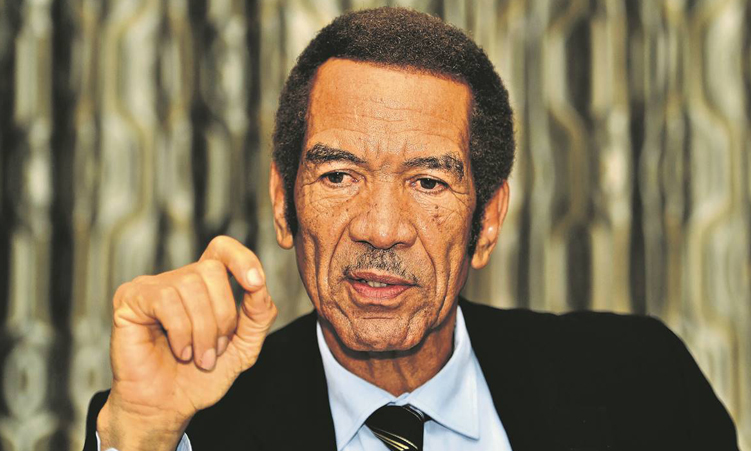
He also alleged that some Zimbabwe nationals were used to vote for the BDP.
“I expect any SADC country to abide fully by its electoral laws and constitution and the SADC guidelines on conducting free and fair elections, which, as we are aware, are violated by some member states,” Khama said.
Although Zanu-PF has rubbished these allegations, the shadow keeps following the party that has been accused of widespread human rights violations.
Several political leaders and human rights organisations across SADC have pointed fingers at Mnangagwa’s party for helping other liberation parties hang on to power.
Zanu-PF, which has close ties with Namibia’s ruling party, Swapo, has been unapologetic about helping fellow political parties in the SADC region.
For instance, Zanu-PF secretary general Obert Mpofu is said to have jetted off to Namibia since last week – a week before the country’s Presidential and National Assembly elections.
Zimbabwean TV whistleblower and human rights activist Shepherd Yuda claims the Zanu PF has caused disruption in the political landscape of Mozambique, citing violence and civil unrest.
Yuda told The Namibian this week that Zanu PF is pursuing a strategy of regional dominance among “revolutionary parties” through questionable electoral practices.
“This demonstrates the pitfalls of Emmerson Mnangagwa seeking to impose Zanu PF influence in a stable and changing region where revolutionary parties are losing the grip on governance,” he said.
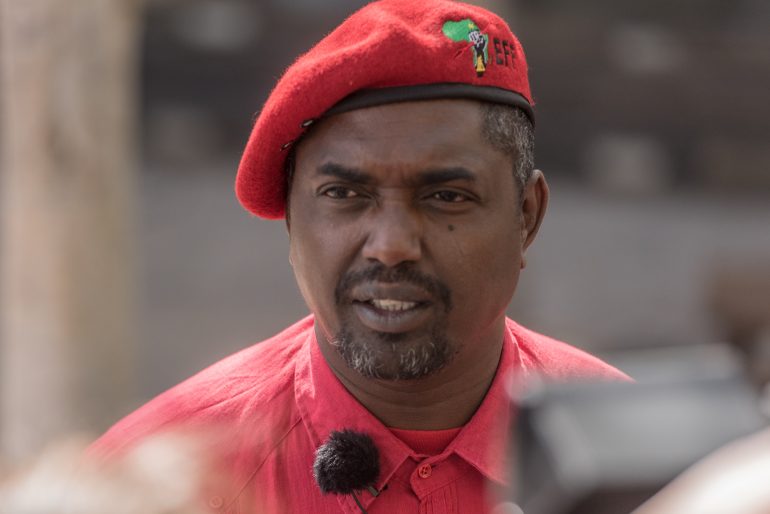
MODUS OPERANDI
Earlier this year, South Africa’s Democratic Alliance (DA) said the Zanu-PF should be barred from the country’s 2024 elections.
“The ANC’s invitation to Zanu-PF, asking them to come and be part of their election campaign programme amounts to political interference with our elections.
“Zanu-PF has rigged Zimbabwe’s elections many times over.They will not do it here in South Africa,” the party said.
Economic Freedom Fighters (EFF) international relations commissar Godrich Gardee says liberation movements such as the African National Congress (ANC) have learnt from Zanu PF.
“Remember, Zanu-PF and ANC are one and the same team. So, Zanu-PF does not have to be physically and personally here in South Africa.
“They just tell their friends here how to rig elections, and then the people who are presiding officers of the IEC are mostly aligned to the ANC,” he says.
Gardee says: “When the ballot box is moving from the voting station to the results capturing centre, they pull out a blank result slip and just transpose the numbers and sign for the party agents.”
They then give the new slip to the capturing centre, which does not count the ballots but only looks at the result slip, he says.
“They capture whatever they are given by the presiding officers at the capturing centre. If the presiding officer is aligned to the ruling party, that’s what the presiding officer will do. Parties are hardly allowed to observe the capturing,” Gardee says.
“Most parties do not have party agents in villages and on farms. In that instance the presiding officers may even assist the voters who did not come to vote and vote on their behalf.
“The ANC was taught by Zanu PF and they have been doing it for the past 30 years.”
South Africa’s electoral commission has in the past strongly denied allegations of vote rigging.
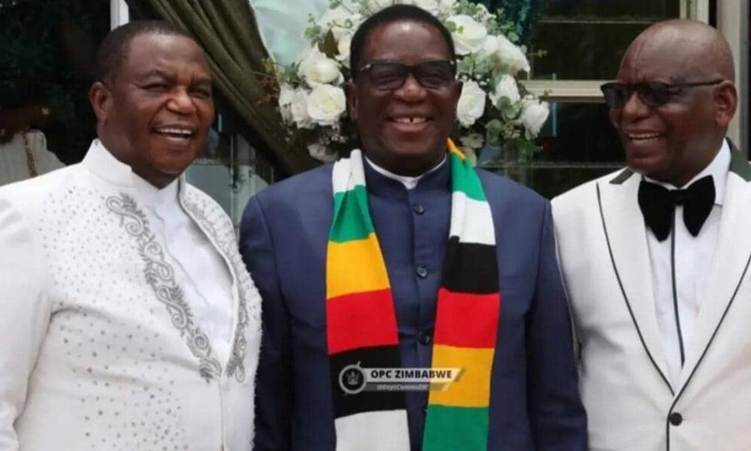
NAMIBIA
Swapo has over the years cemented its ties with Zanu-PF, despite concerns about widespread human rights abuses.
Around N$247 million was looted at Namibia’s SME Bank by individuals close to the Zanu-PF leadership, such as former president Robert Mugabe’s personal banker and pilot.
In December last year, Namibian vice president Netumbo Nandi-Ndaitwah’s husband, Denga, travelled to Zimbabwe when they attended Zimbabwean vice president Constantino Chiwenga’s wedding.
Denga was Chiwenga’s best man.
Chiwenga, a retired army general, is best known for removing Mugabe from power.
In July this year, Swapo secretary general Sophia Shaningwa travelled to Zimbabwe and met with Mnangagwa, also known as ‘The Crocodile’.
The Namibian reported in September that Mnangagwa’s son donated money to Swapo.
This donation was part of a N$2.5-million contribution from four Zimbabweans.
Last month, the Electoral Commission of Namibia’s decision to award a ballot production tender to a company linked to a businessman close to Mnangagwa and Zanu-PF attracted public attention.
At the time, Namibia Economic Freedom Fighters (NEFF) deputy president Kalimbo Iipumbu labelled the deal an alliance between Swapo and Zanu-PF.
“The NEFF cannot ignore the secretive meetings between senior Swapo officials and the Zanu-PF leadership, raising the alarm over possible underhand deals and coordinated efforts to manipulate Namibia’s electoral process,” he said.
Namibia’s Rally for Democracy and Progress president Mike Kavekotora this week expressed little surprise at allegations of Zanu PF’s interference.
“Zanu PF is not known for democratic principles. It is known for doing the wrong things and remaining in power through dubious means,” he said.
Kavekotora said liberation movements are implicitly conniving to maintain power at all costs.
“That’s a clear indication that most of these liberation movements are conniving with one another with the objective of trying to remain in power – regardless of the wishes and aspirations of the people of a given country,” he said.
Popular Democratic Movement secretary general Manuel Ngaringombe has also condemned Zanu PF, urging the party to respect other countries’ sovereignty.
“If these allegations are true, the Zanu-PF must cease all interference immediately. Namibian elections should be free from foreign tampering,” he said yesterday.
Swapo Party Youth League secretary Ephraim Nekongo this week rubbished claims of interference by its partner party in Harare.
He called it “Western propaganda”.
Nekongo said there is nothing wrong with former liberation struggle movements attending each other’s rallies.
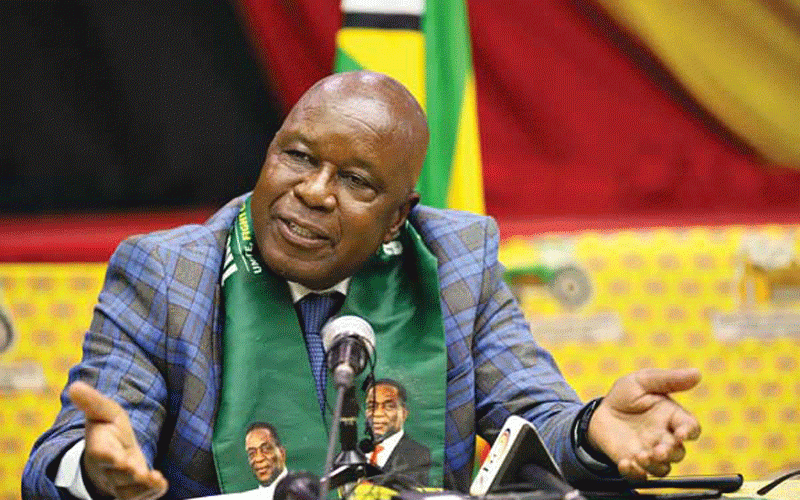
MOZAMBIQUE
Zimbabwean newspaper The Mirror has reported that some Zimbabweans voted for Mozambican ruling party Frelimo in last month’s elections.
Subsequent to the publication of the article, Zimbabwe’s information ministry permanent secretary Nick Mangwana reportedly issued The Mirror a warning, suggesting the publication would soon face the consequences of its reporting.
Zanu PF spokesperson Chris Mutsvangwa yesterday called the allegations “preposterous and false”.
Referring to videos that surfaced of Zimbabweans voting in Mozambique, Mustvangwa said they were dual citizenship holders, who had a right to vote in that country.
“We are a sister party of Frelimo, and we respect the electoral process of each country. So, these allegations are unfounded.
“The Mozambique electoral system allows non-residents to vote, and the biggest number of those are in South Africa and Zimbabwe.
“As a colonial territory we had more capital than others, and a lot of Mozambiquens migrated to Zimbabwe. We do not have xenophobic issues, and we have given these people citizenship, and if they are allowed to vote in Mozambique, then that is fine.
“There are people who are trying to make Zimbabwe an outcast of the SADC region,” he said.
Frelimo has maintained its close relations with liberation movements such as Swapo, the ANC, Angola’s People’s Movement for the Liberation of Angola (MPLA), the Zanu-PF and the BDP.
Zimbabwean media reported in October that Zanu PF legal secretary Patrick Chinamasa attended a rally in Botswana where Zanu PF promised the BDP it would retain power.
Zanu PF secretary general Obert Mpofu did not respond to a text The Namibian sent to him on Wednesday.
However, a week ago, Zimbabwean state-owned newspaper The Herald reported that Mpofu denied his party interfered with neighbouring electoral outcomes.
“There is no doubt that Zanu-PF is a juggernaut, but I feel at times our reach is overestimated. We neither have the capacity nor intention to participate and influence electoral outcomes in any of our neighbouring countries, and none of our supporters ever fraudulently acquired identity cards to vote in foreign polls,” Mpofu wrote in his column published by The Sunday Mail.
Political analyst Henning Melber says the suggestion that Zanu-PF supports Swapo should not be overlooked.
“It is based on the shared agenda of former liberation movements now in power and in control of their states.”

